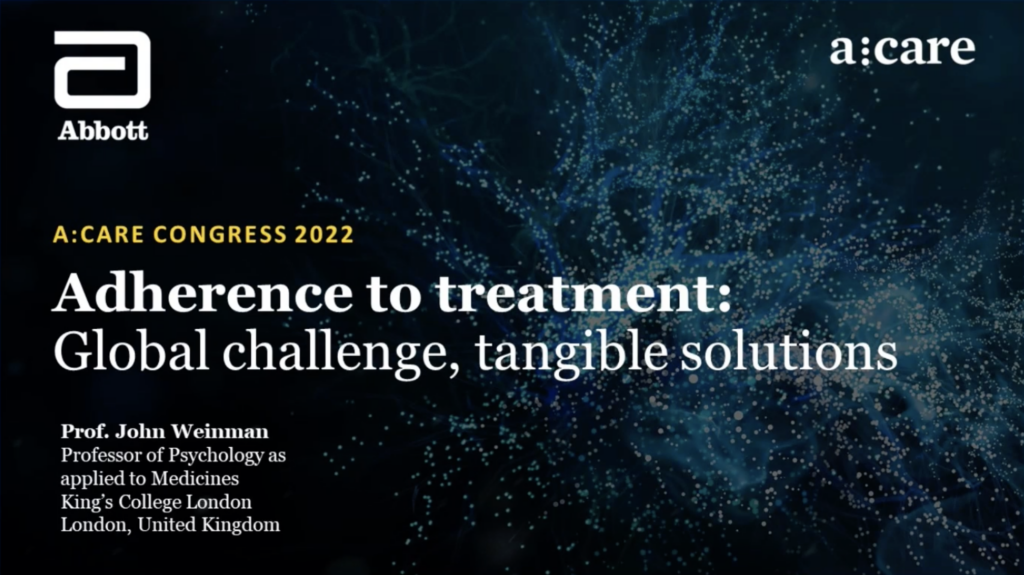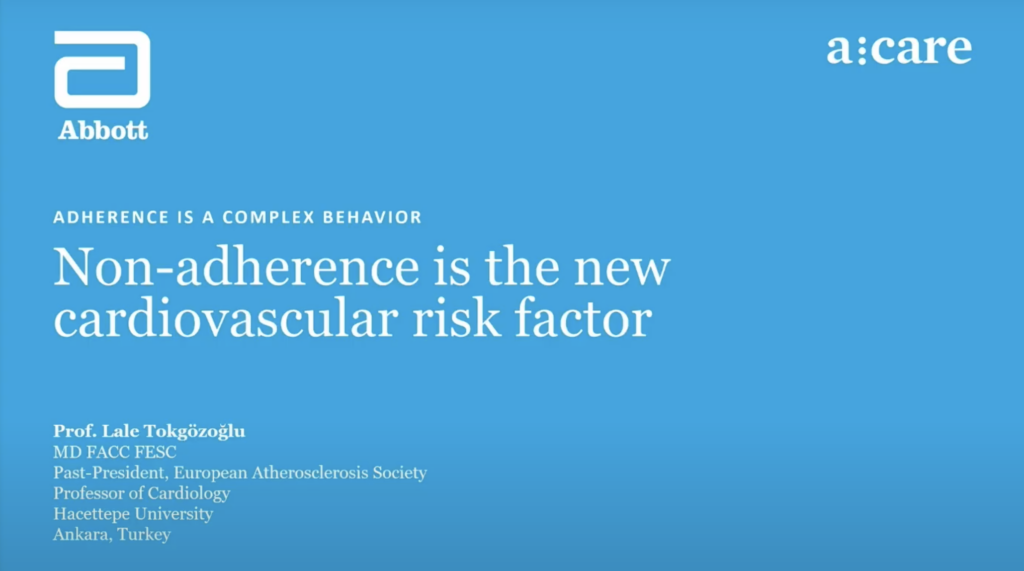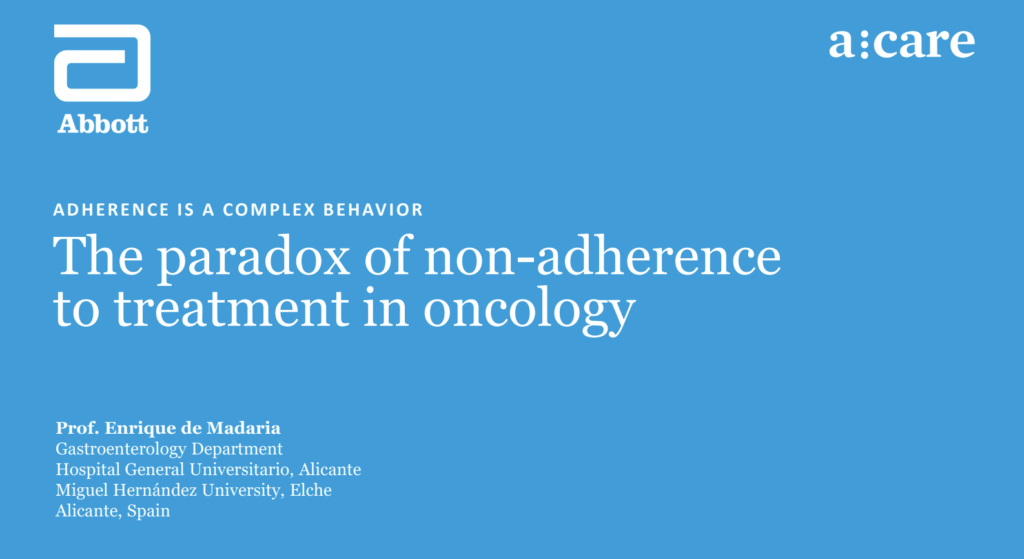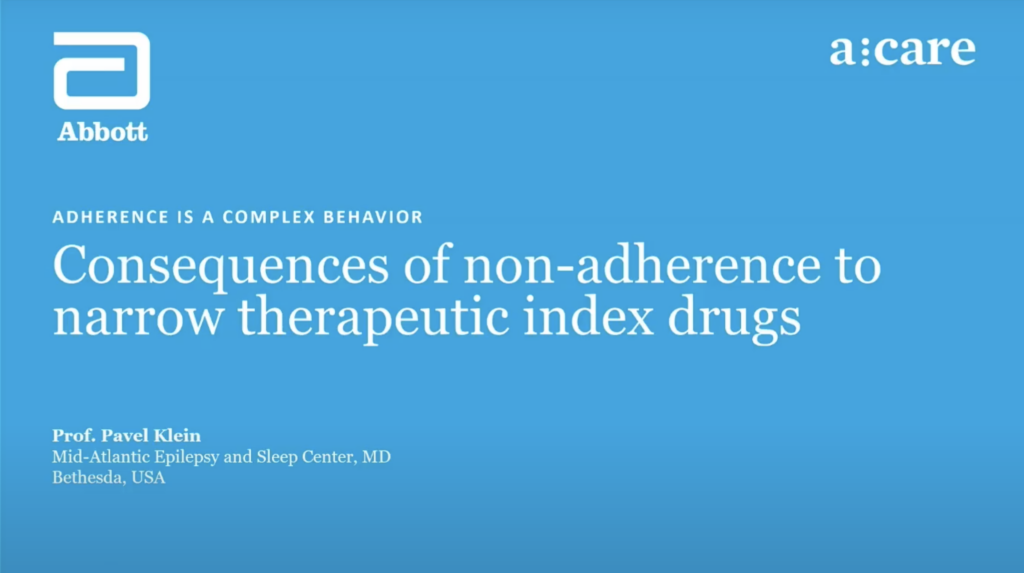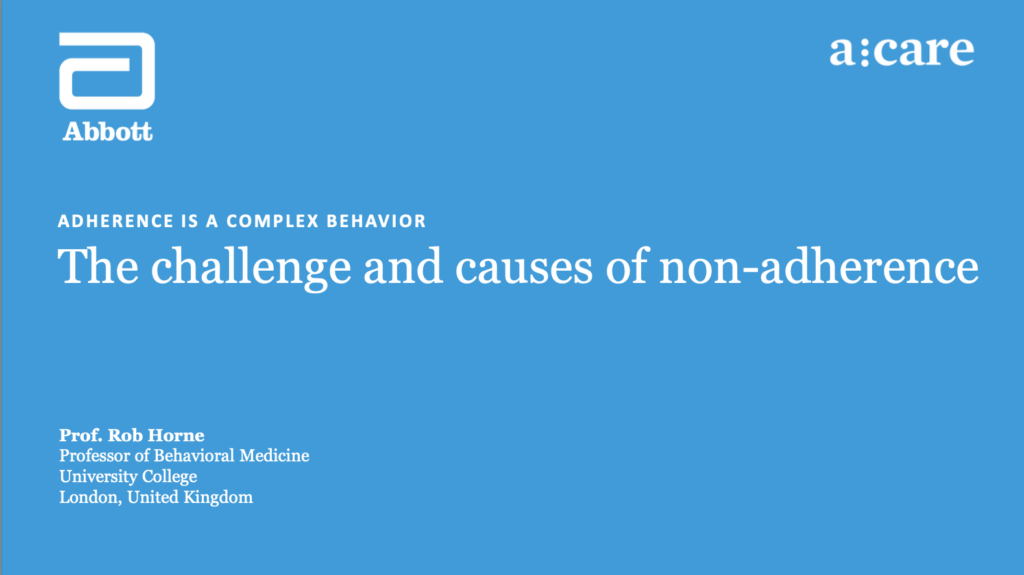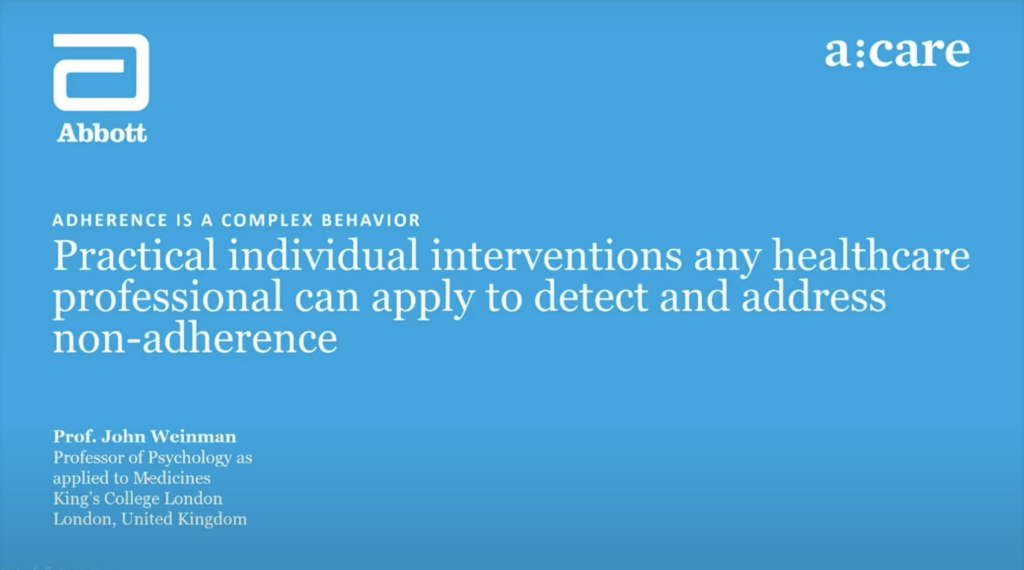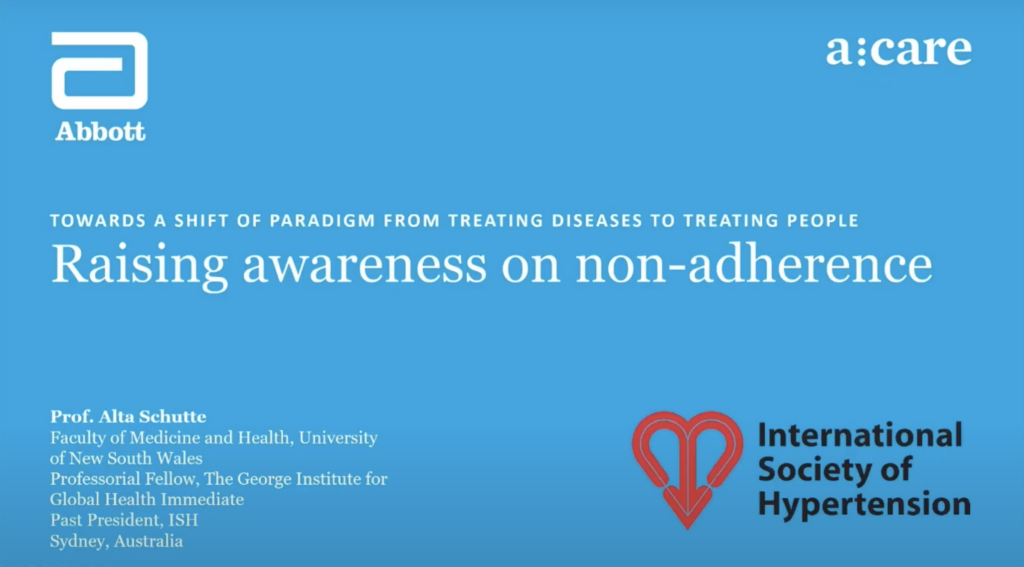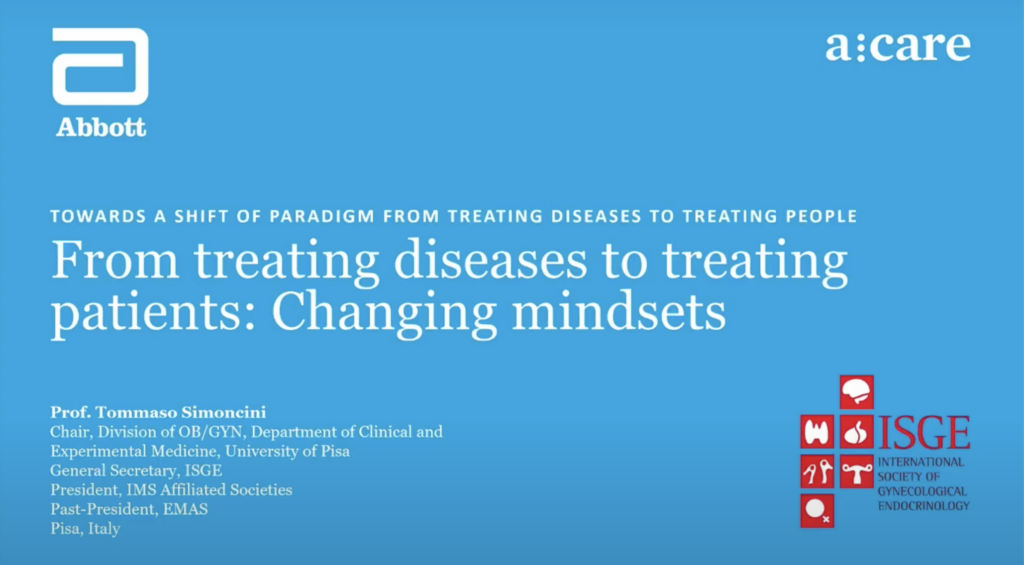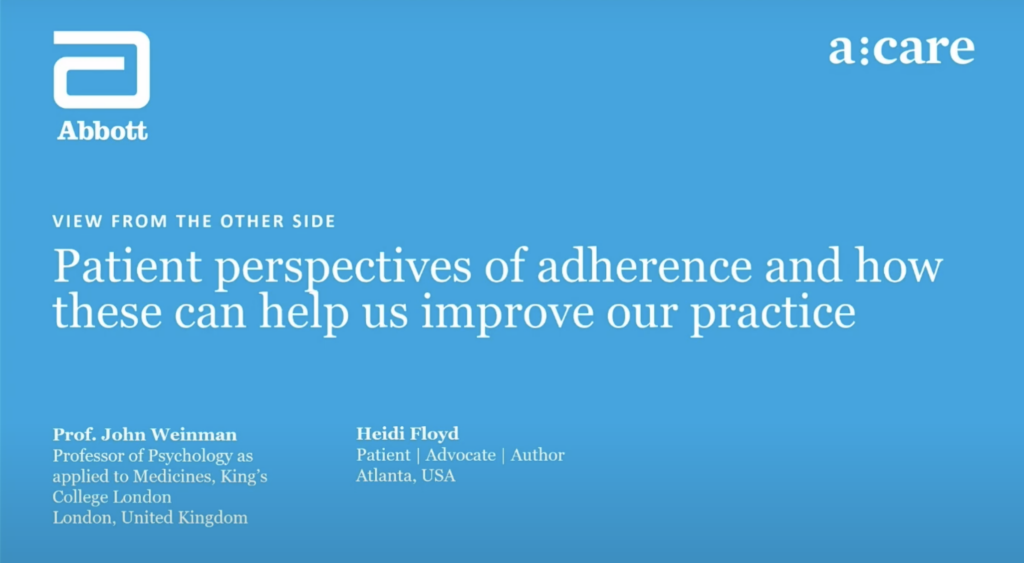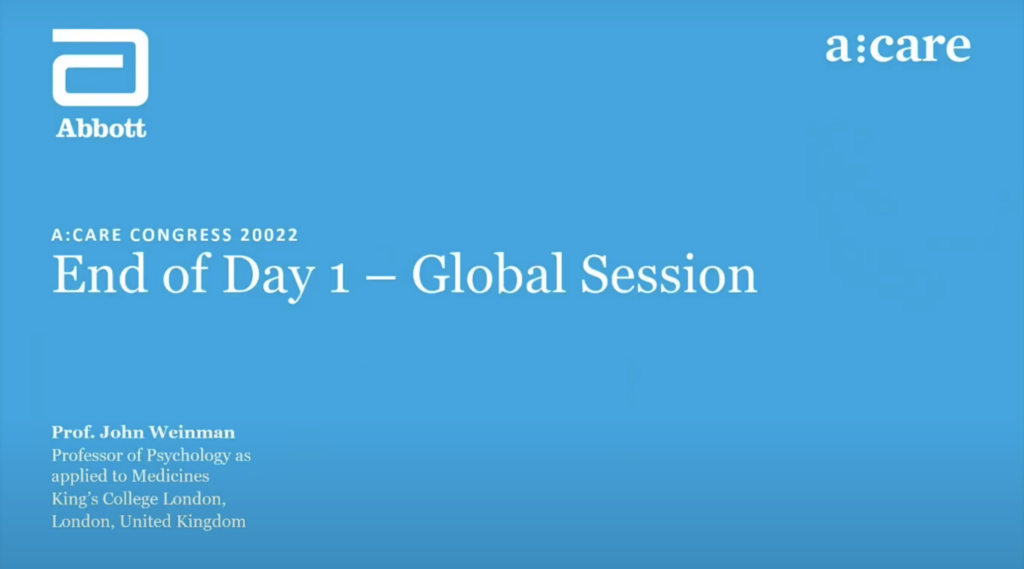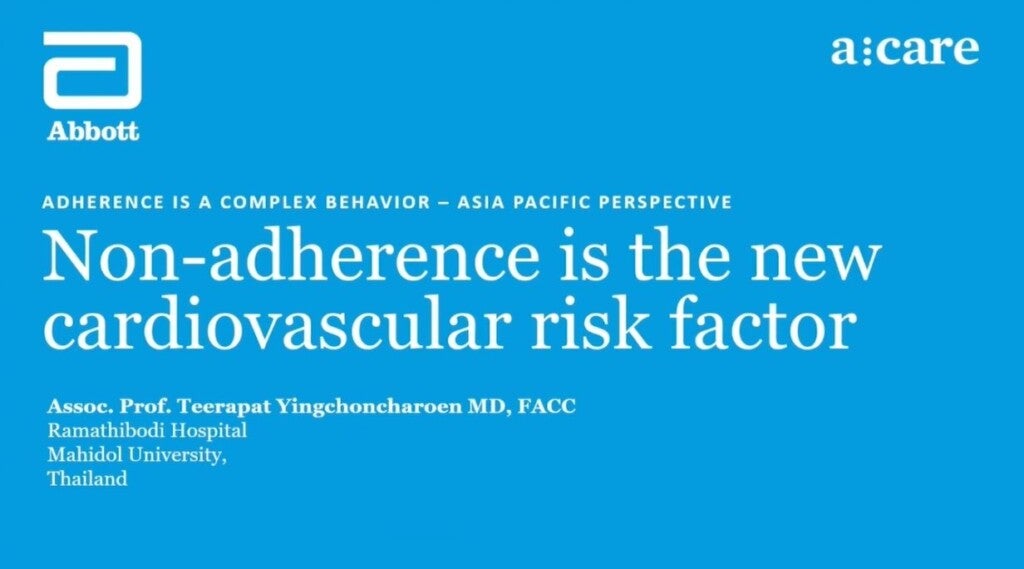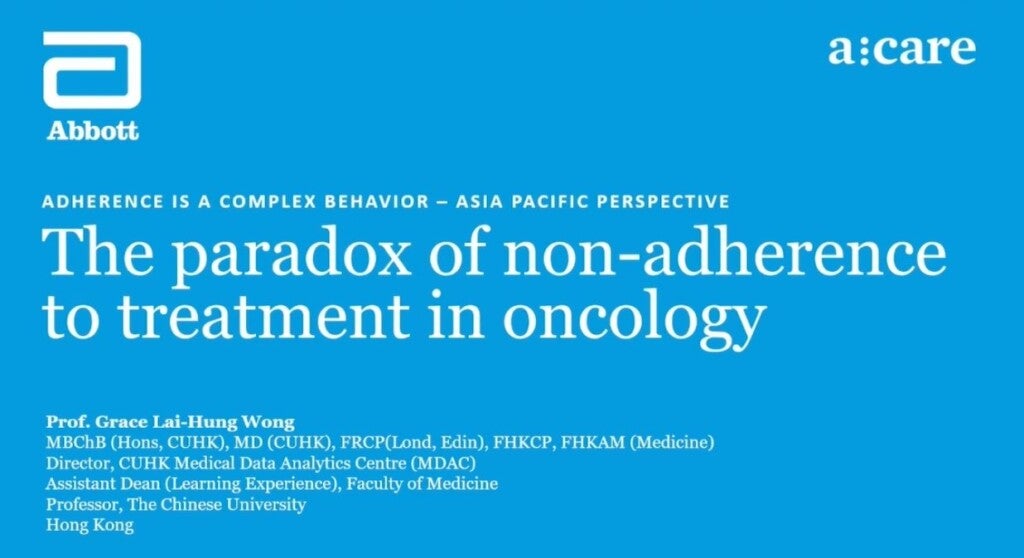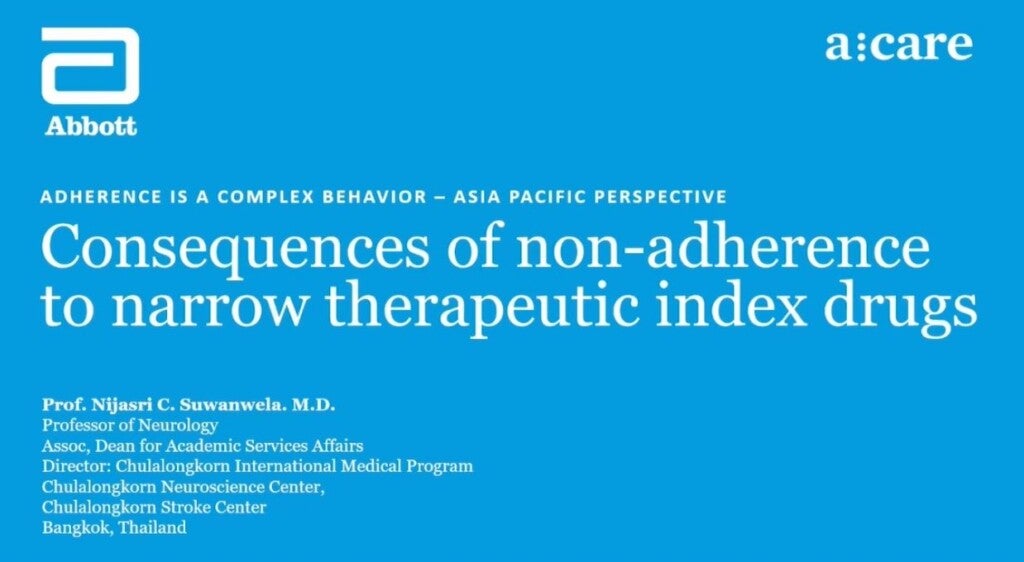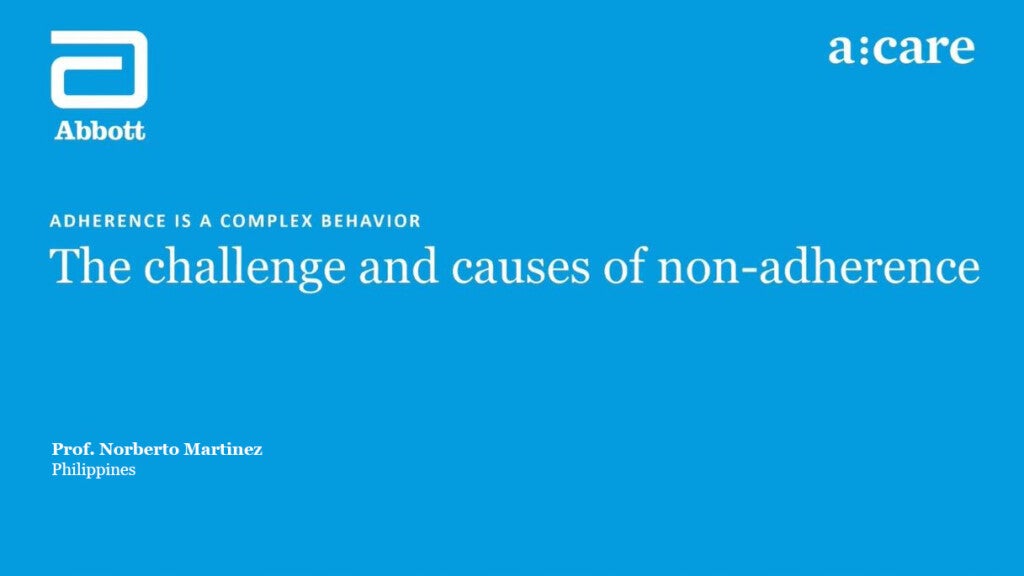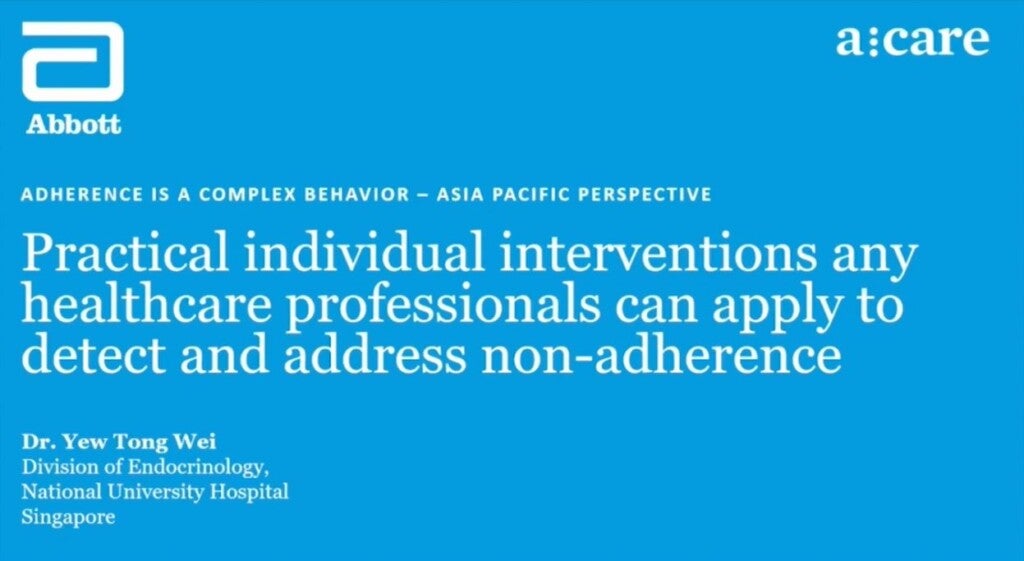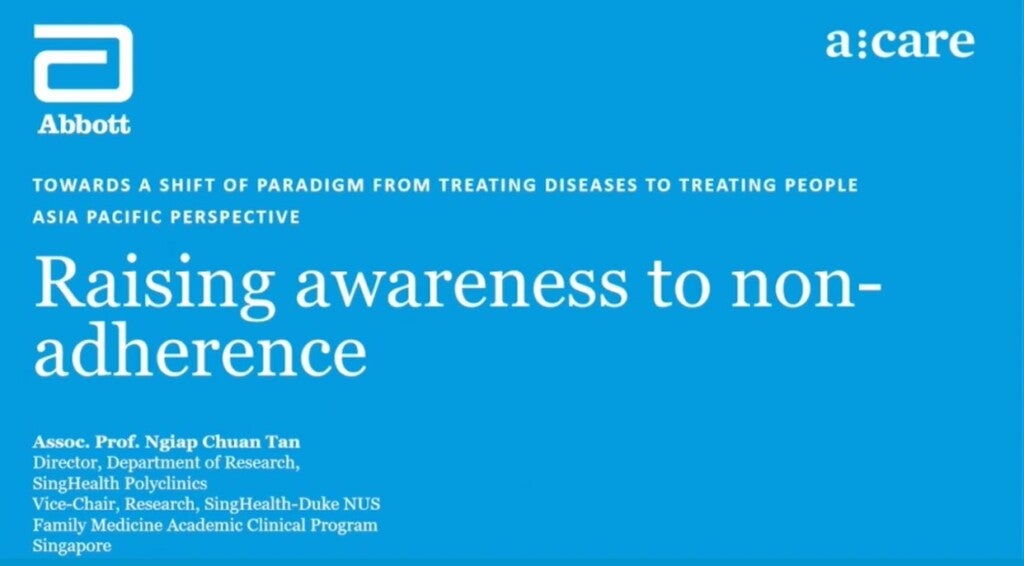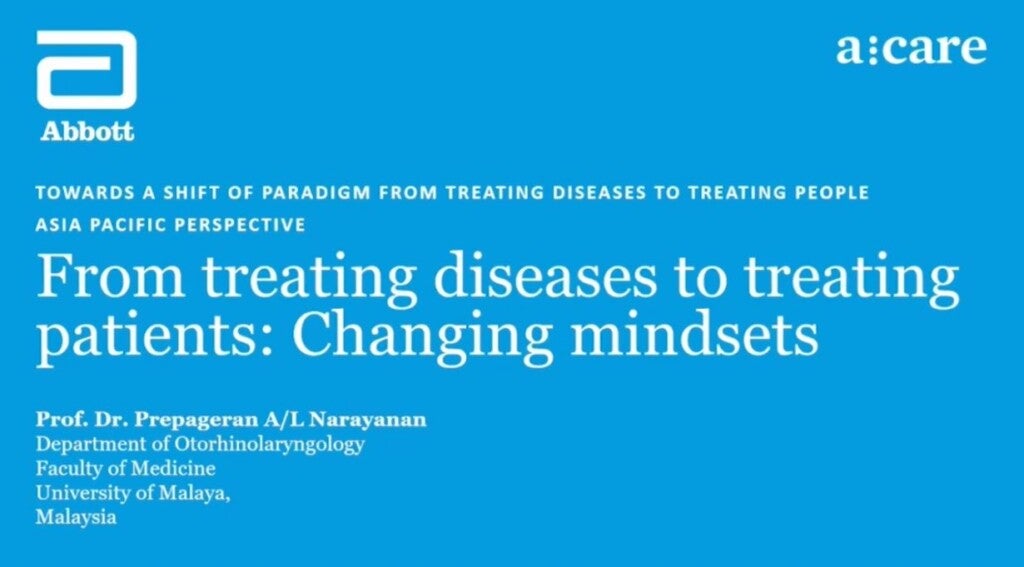
ADHERENCE TO TREATMENT: GLOBAL CHALLENGE, TANGIBLE SOLUTIONS
The a:care Congress 2022 is an evolution of our inaugural program in 2021, which takes a deeper look at the underlying drivers of non-adherence. Here you can find the recorded sessions delivered by our faculty experts on the two days of the Congress.
Welcome and congress introduction
Professor John Weinman and Dr. Matthias Mueller open the congress by introducing the challenges adherence poses to global health and highlighting the innovative potential that dialogue between behavioral science and clinical practice offers.
Prof. John Weinman – Dr. Matthias Mueller, Abbott
Non-adherence is the new cardiovascular risk factor
Over the last few decades, mortality from coronary heart disease has been reduced by 50% thanks to the progress of medical care in prevention and treatment.1 Today, one of the main remaining challenges is non-adherence to treatment. Non-adherence has become the new cardiovascular risk factor, accounting for a high proportion of preventable hospitalizations and deaths from coronary arterial disease.
Prof. Lale Tokgözoğlu
The paradox of non-adherence to treatment in oncology
Cancer is a complex condition, often thought of in relation to fatal outcomes and minimal chances of recovery. Despite these heavy associations, oncology is not immune to treatment non-adherence, with an estimated 12% to 50% of cancer patients not following their oncological treatments as prescribed.2 This session focuses on the paradox of medication non-adherence in oncology and proposes multiple ways to address the paradox in practice.
Prof. Enrique De Madaria
Consequences of non-adherence to narrow therapeutic index drugs
Narrow Therapeutic Index medicines (NTIs) can control epilepsy but require precision – too low a dose will lack efficacy, too high a dose can be toxic. These tight treatment conditions can make adherence more difficult, while non-adherence can have fatal consequences with even a single missed dose.
Prof. Pavel Klein
The challenge and causes of non-adherence
With about 50% of medicines not taken as prescribed3 and an estimated cost of 125 billion euros per year in Europe, treatment non-adherence is a major healthcare challenge. This session takes a deep dive into behavioral science and explores the complexity of the beliefs and perceptions that can underlie non-adherence.
Prof. Rob Horne
Practical individual interventions any healthcare professionals can apply to detect and address non-adherence
Since 50% of patients are likely to become non-adherent to long-term medication, the understanding and management of adherence challenges become critical. Behavioral experts have developed techniques as well as educational and interventional tools to support adherence that any healthcare professional can apply or prescribe.
Prof. John Weinman
International Society of Hypertension – Raising awareness on non-adherence
Hypertension is the leading cause of death globally, affecting over 1.4 billion people.4 The rate of non-adherence escalates with the number of medicines prescribed, from less than 10% for a single pill to a very high rate of non-adherence for five or more. In this context, the International Society of Hypertension has implemented actions to raise awareness of non-adherence and prevent harmful outcomes linked to the hypertension cascade.
Prof. Alta Schutte
International Society of Gynecological Endocrinology – From treating diseases to treating patients: changing mindsets
Menopause is a physiological stage of women’s lives that is surrounded by preconceptions and is often seen as a benchmark of ageing. Menopause can be mentally and physically challenging and comes at a time when women are in their prime with so much of life to live. It is necessary for practitioners to lay aside stigma and preconceptions, to not treat menopause as a condition and instead to treat women as people going through an important life transition.
Prof. Tommaso Simoncini
Patient perspectives of adherence and how these can help us improve our practice
People with chronic diseases are more than patients. They are individuals with their unique stories. In an intimate and open-hearted conversation with Professor John Weinman, Heidi Floyd shares her thoughts on adherence and offers insights on how patients’ perspectives can help healthcare professionals improve their practice.
Prof. John Weinman – Heidi Floyd
Local session
Non-adherence is the new cardiovascular risk factor – Asian Pacific perspective
Medications non-adherence is common in patients with CVD (up to 61% in patients receiving three cardiovascular medications). Assoc. Prof. Teerapat Yingchoncharoen addresses various aspects of this phenomenon across population and highlights useful techniques for early detection and management of non-adherence.
Assoc. Prof. Teerapat Yingchoncharoen
The paradox of non-adherence to treatment in oncology – Asian Pacific perspective
Adherence is the foundation of successful oncological treatments. The whole of the healthcare systems contributes to the phenomenon of non-adherence and can play major role in managing this problem. Prof. Grace Lai-Hung Wong highlights different prospective of adherence of patients and physicians and discusses keys factors that lead to non-adherence to oncological treatments.
Prof. Grace Wong
Consequences of non-adherence to narrow therapeutic index drugs – Asian Pacific perspective
Many narrow therapeutic index drugs are essential for protecting patients at risk from further severe cardiovascular events and their sequalae. Prof. Nijasri C. Suwanwela discusses case studies and dissects current available scientific and real-world evidence related to adherence practices in acute stroke management in patients with cardiovascular risk.
Prof. Nijasri C. Suawanwela
Q&A Session 1
Session is chaired and moderated by Prof. Wong.
The challenge and causes of non-adherence – Asian Pacific perspective
Non-adherence to medication remains one of the major barriers to adequate management of the patients with chronic health conditions. Prof. Norberto Martinez discusses the main causes of medication non-adherence in Asia Pacific and shares real world evidence from the region.
Prof. Norberto Martinez
Practical individual interventions any healthcare professionals can apply to detect and address non-adherence – Asian Pacific perspective
Person-centred care is the care that is respectful of, and responsive to, individual’s preferences, needs and values, and ensuring that person’s values guide all decisions. Dr. Yew Tong Wei shares his views and practical solutions that help address non-adherence in patients.
Dr. Yew Tong Wei
Raising awareness on non-adherence – Asian Pacific perspective
Taking the conversation about non-adherence to practicing physicians is as important as to patients. Improving awareness on non-adherence and its consequences in clinical practice is one of the main approaches in improving treatment outcomes. Assoc. Prof. Ngiap Chuan Tan shares his experience and methodologies in addressing non-adherence in Singapore patients.
Assoc. Prof. Ngiap Chuan
From treating diseases to treating patients: changing mindsets – Asian Pacific perspective
Combination of medical training and patient education plays major role in ensuring a new humanistic approach to the practice of medicine. Prof. Dr. Prepageran A/L Narayanan discusses other, non-technical aspects of clinical practice, such as commitment, humility, and other attributes that encourage physicians to treat people and not just diseases.
Prof. Dr. Prepageran
Q&A Session 2
Session is chaired and moderated by Prof. Dr. Prepageran A/L Narayanan
References
1. McClellan M, Brown N, et al. Call to action; Urgent Challenges in Cardiovascular Disease. Circulation. 2019;139:e44-54
2. Greer Joseph, Amoyal Nicole, et al. A Systematic Review of Adherence to Oral Antineoplastic Therapies. The Oncologist 2016;21:354-376.
3. Sabaté E, editor. Adherence to long-term therapies: evidence for action. World Health Organization; 2003.
4. Egan BM., Kjeldsen SE. et al. The global burden of hypertension exceeds 1.4 billion people. Journal of Hypertension. 2019: 37(6):1148-1153.
Endorsed by


